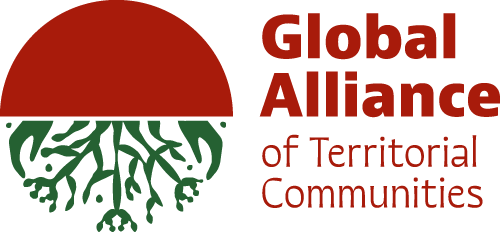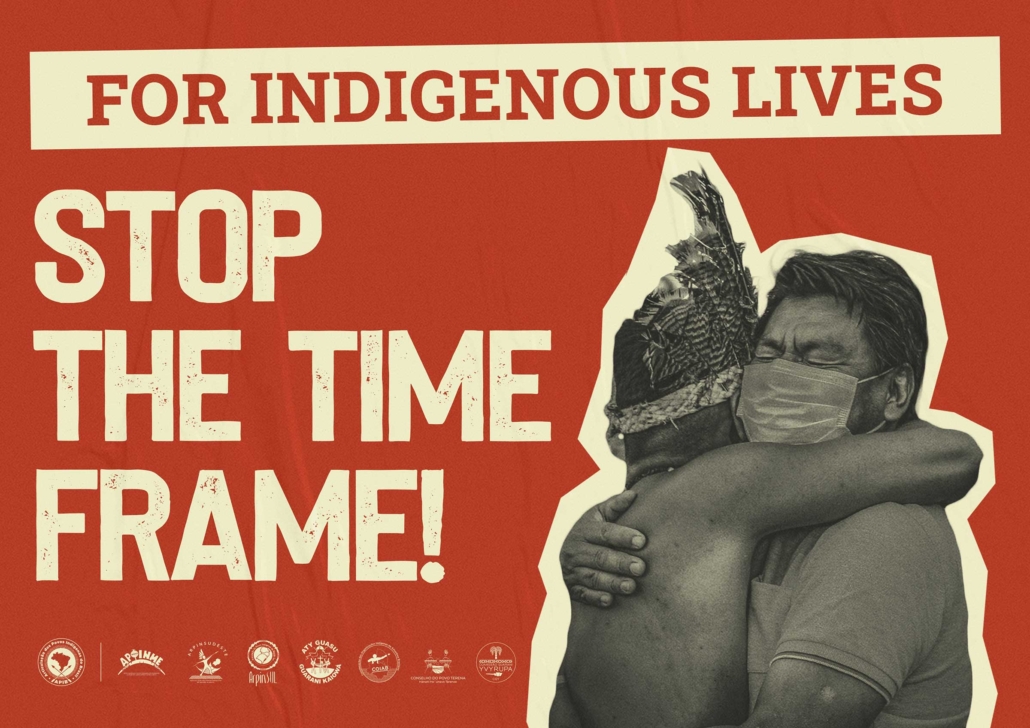After years of fiercely defending their rights and territories against Bolsonaro’s right-wing government, indigenous peoples in Brazil and the international community were hopeful for a change with the victory from Lula, who ran for presidency with promises to protect the environment and rebuild relationships with indigenous peoples. The creation of the Indigenous Peoples Minister -led by Sonia Guajajara– and the demarcation of six new indigenous territories (some that had been waiting for 30 years to get this status) indicated the turn of an era.
However, it was short-lived; the anti-indigenous and pro-ruralist agenda still deeply permeates Brazilian politics and society. Large portions of the country are against policies that benefit indigenous peoples, granting them rights over their ancestral lands, and many claim the best way to ‘develop’ the country is through extensive soy planting, cattle ranching and so on. Despite solid evidence that these actions could worsen the climate crisis. Right now, indigenous peoples (IPs) are standing up against at least five laws and legal documents that put their lives and territories at risk. The Marco Temporal thesis ‘Time Frame’ and the PL2940/PL2903 bills want to stop indigenous land demarcation, which could give the green light to ruralist groups to invade and violate the rights of the indigenous peoples who guard biodiversity.
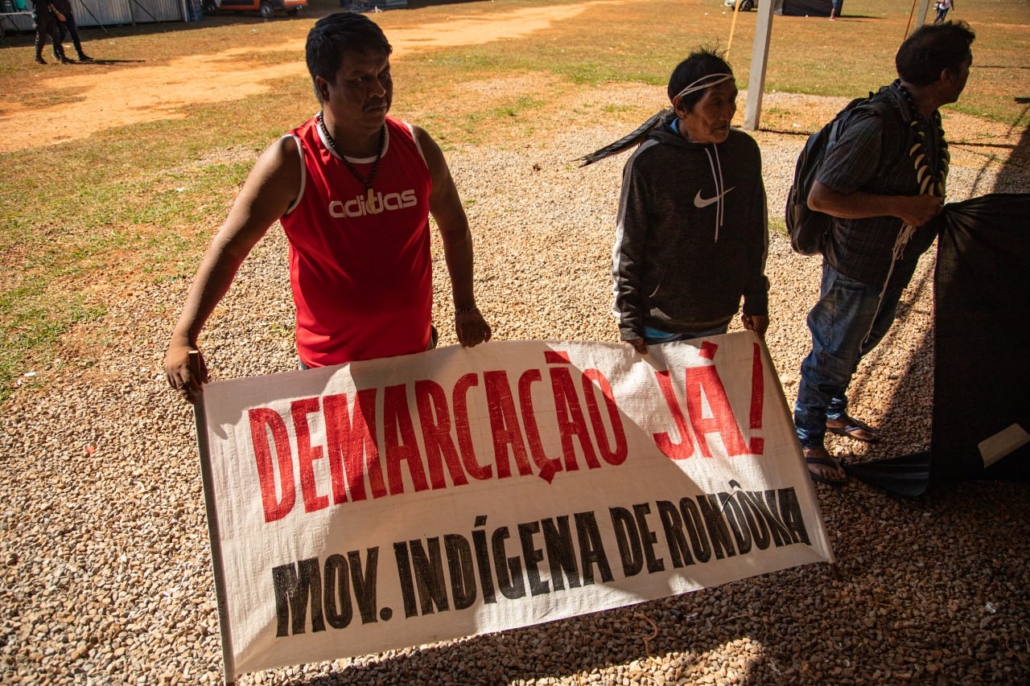
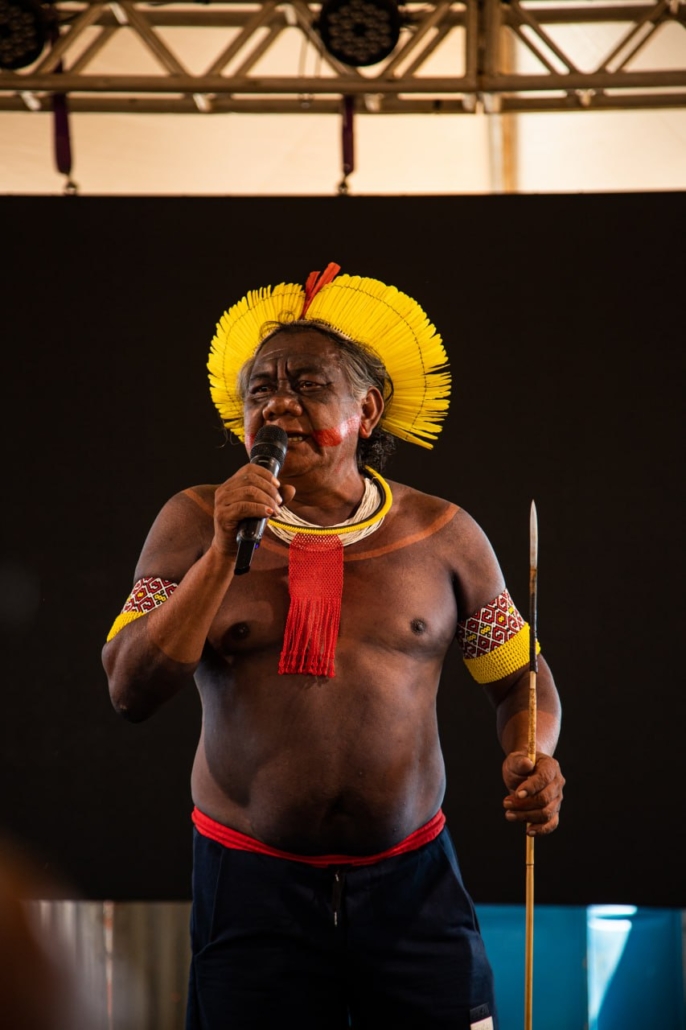
photo: @junomundo
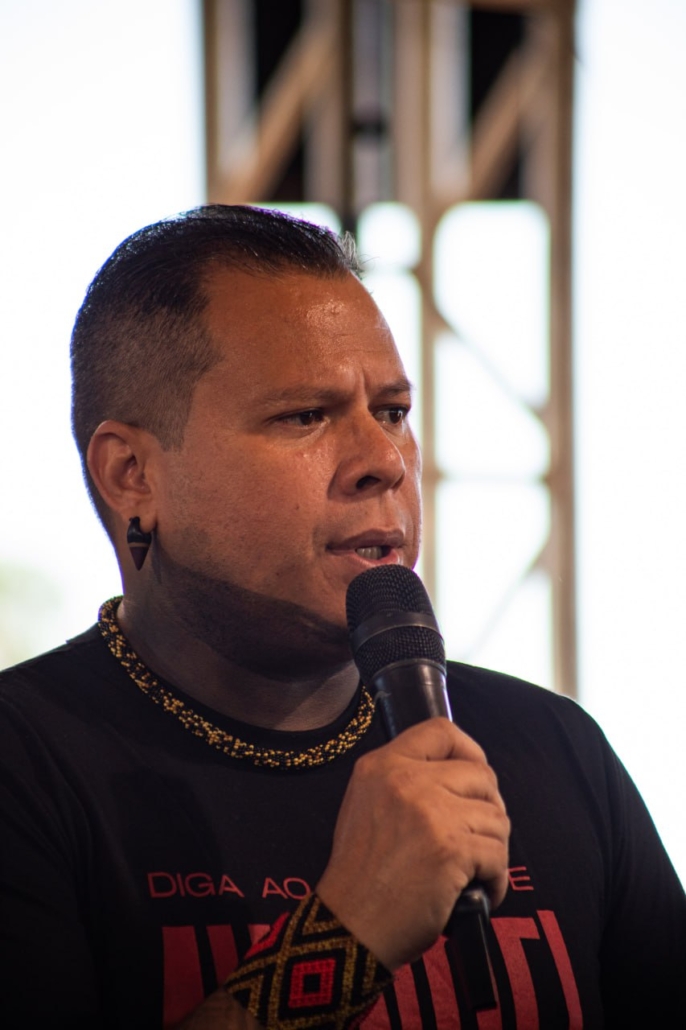
Moreover, the Chamber of Deputies, the Senate and the Justice system hold members who claim there is already too much land in the hands of indigenous peoples whilst pushing for more significant concessions to mega agricultural projects, oil exploration and mining. Just last week, on the 30th of May, Brazilian deputies approved the PL2940 bill (now called the PL2903), which proposes the release of highway construction, hydroelectric plants, and other works on indigenous lands without free, prior, and informed consultation with IPs; grants authorisation to challenge land demarcation at any stage; loosens the political framework of no-contact with isolated peoples. The bill is set to be reviewed by the Senate in the coming days. The Articulation of Indigenous Peoples of Brazil (APIB) has called for continuous national mobilisations to stop it and is providing live coverage of the situation.
Threats to indigenous peoples are also carried through the Justice System. The Marco Temporal thesis could turn into a harmful legal precedent soon. The text argues that indigenous peoples are only entitled to the demarcation of their traditional lands if they were occupying these lands on the 5th of October, 1988, the date of the publication of the Federal Constitution of Brazil. According to this thesis, lands occupied by other people on that date cannot be demarcated as indigenous lands. These territories can be considered the property of private individuals or the State, no longer of the original peoples who inhabit them. The thesis has been defended by rural sectors and politicians who argue that the lack of a defined date for the occupation of land occupation by indigenous people generates legal insecurity and land conflicts. However, it is widely criticised by jurists, indigenous organisations, social movements and environmentalists, who point out that the thesis is a threat to the rights of indigenous peoples and an affront to their dignity and survival. In addition, many indigenous communities were expelled from their lands during the military dictatorship and were only able to return after the date established by the thesis, which can result in serious human rights violations.
The Marco Temporal thesis could be approved on the 7th of June when the Federal Supreme Court will make a ruling on the Xokleng case -a dispute raised by the Environmental Institute of Santa Catarina (IMA by its Portuguese name) against the National Foundation of Indigenous Peoples and the Xokleng people that aims to strip them from ancestral lands. If the IMA wins using the Marco Temporal legal argument, many more legal cases could follow to challenge the demarcation of indigenous lands across the country.
Scientists across the globe have shown again and again that granting indigenous peoples access to their lands is the most effective way to protect the critical ecosystems that the whole of humanity needs to halt climate change. For example, the most recent study by the Monitoring of the Andean Amazon Project shows that indigenous territories are even more efficient at stopping deforestation and forest loss than nationally protected areas. The data is significant for Brazil, which holds the planet’s most extraordinary biodiversity and fauna; 10% of our world’s species call it home. Additionally, 305 indigenous ethnic groups inhabit these nature-filled territories, providing richness in culture and showing a way to live in connection with nature.
We are currently at a crossroads to stop the projects mentioned above that threaten the lives of indigenous peoples and, in turn, put the biomes under their guardianship at risk of destruction. The loss of nature and cultural richness in Brazil greatly harms planetary health and sets the global goals to halt climate change in jeopardy.
How can you help?
- Follow the Articulation of Indigenous Peoples in Brazil (@apiboficial) to be updated and share their content with the relevant hashtags #MarcoTemporalNão! #VidasIndígenasImportam #NossoDireitoÉOriginário #EmergenciaIndígena #DemarcaçãoJá!
- Follow the Global Alliance of Territorial Communities (@globalalliancet & @guardiansoftomorrow_)
- Mobilise authorities, celebrities and influencers to speak up in support of indigenous peoples and our planet.
- Organise protests in front of Brazil’s Embassies, Universities, the European Parliament, etc.
- Donate here to support the indigenous mobilisation.
- Support and promote the visibility of our participation in Bonn, Germany, during UNFCCC events (LCIPP /FWG 9; Indigenous Caucus; SBSTA)
